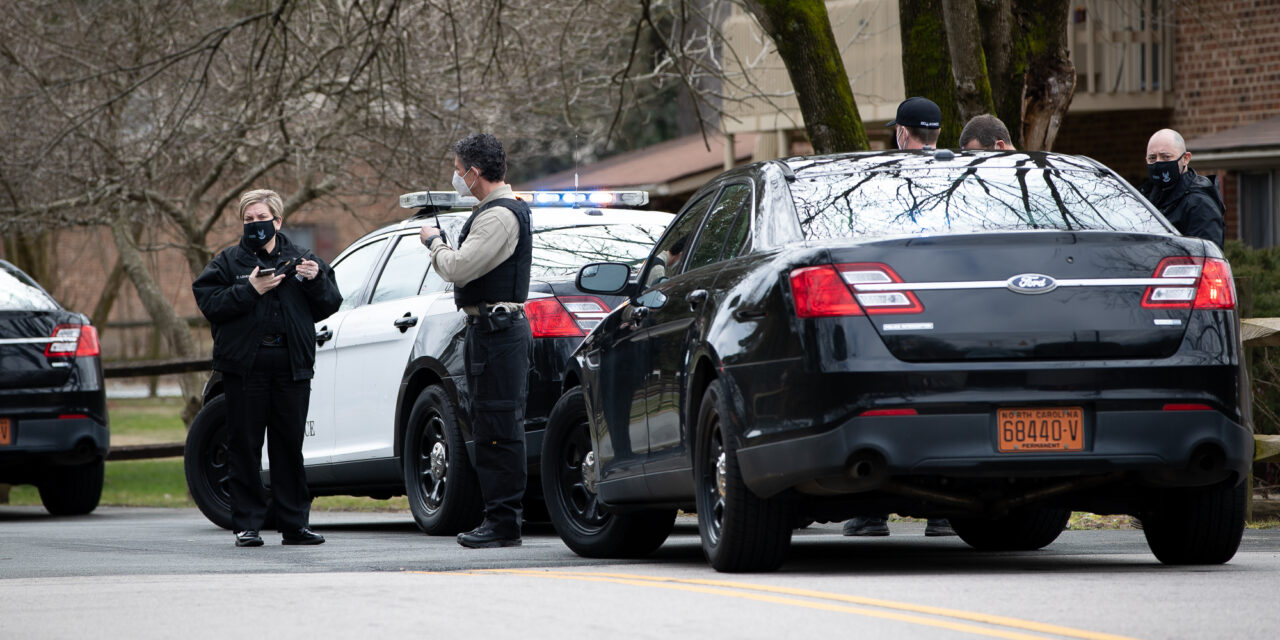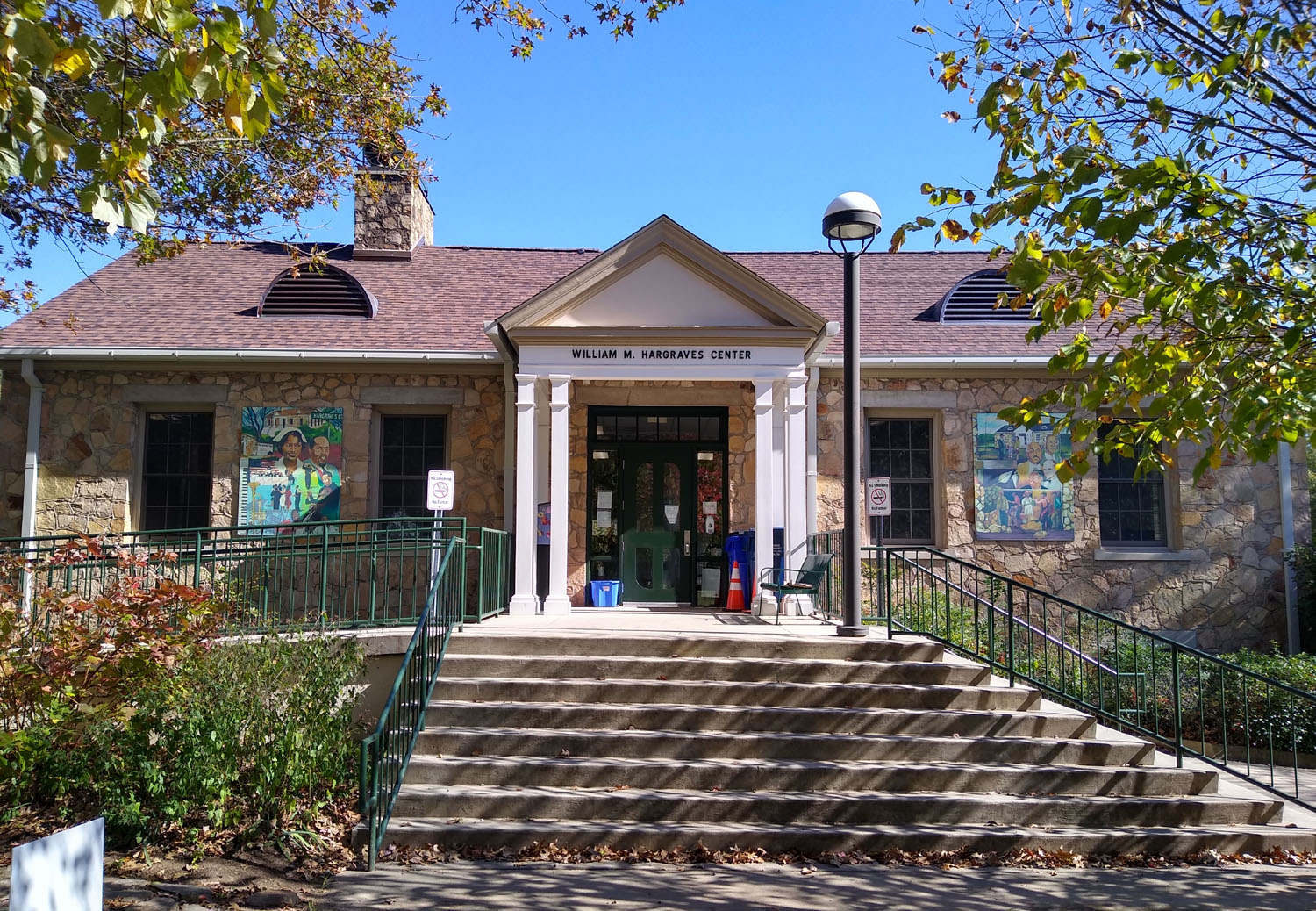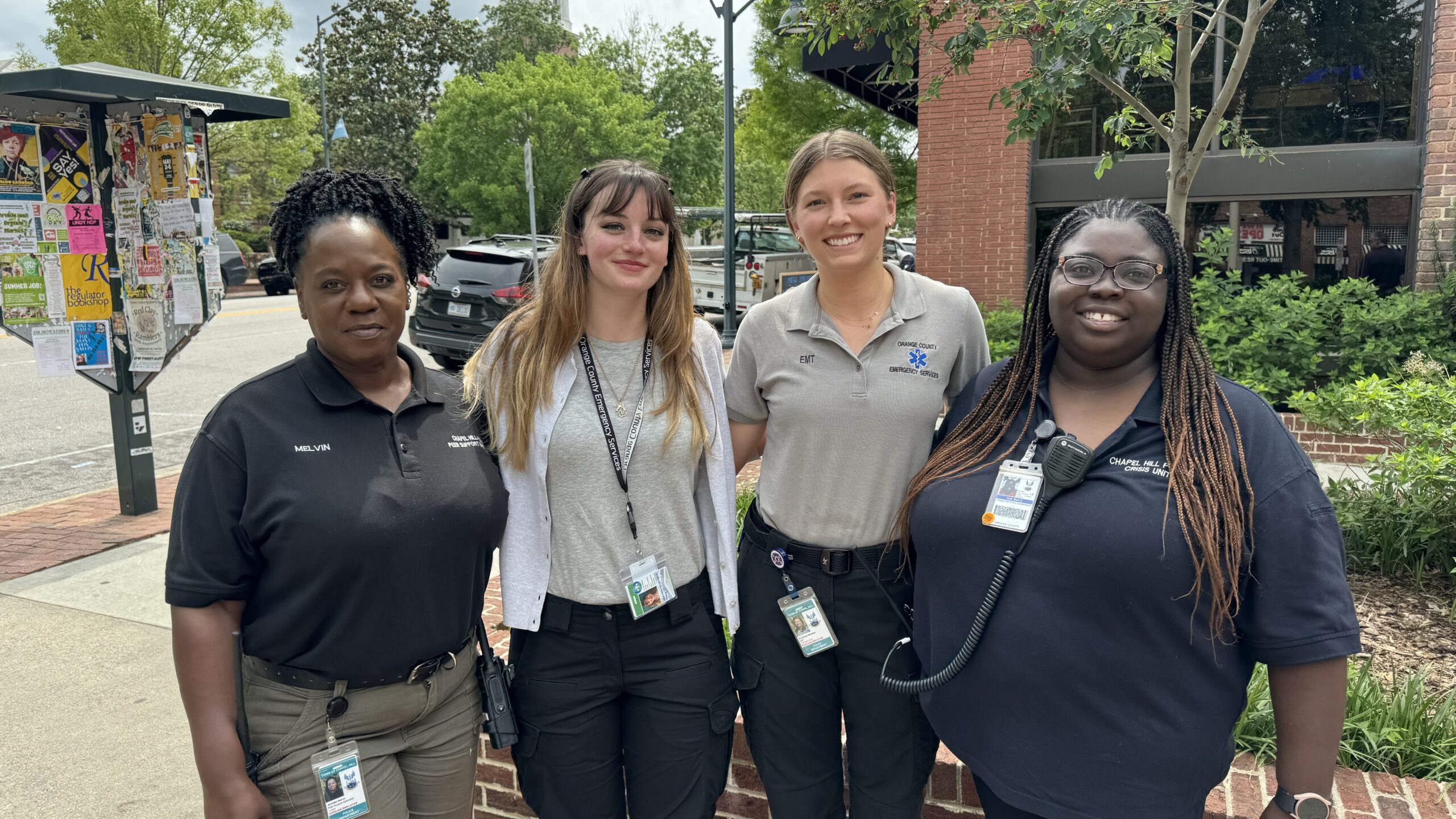Since 1973, the Chapel Hill Police Department has had a crisis unit where mental health specialists are paired with law enforcement officers to respond to calls. Now, 50 years later, a nearly $1.2 million grant will add social workers to police departments across Orange County.
The grant will fund four social workers — one for the Carrboro, Chapel Hill and Hillsborough police departments, as well as one for the Orange County Sheriff’s Office.
On Feb. 21, the Director of the Criminal Justice Resource Department Caitlin Fenhagen presented the grant to the Orange County Board of Commissioners. She said the social workers and officers will form a community care and diversion response team.
“One of the reasons I think law enforcement is so supportive and interested in really embedding social workers is because they understand the danger to their patrol officers going out on these calls that may not be as trained in how to respond or de-escalate,” she said.
This is one of the primary goals of the team: to divert cases involving serious mental illness from arrest and incarceration. And instead, getting people the help they actually need.
Commissioner Chair Jamezetta Bedford said the hope is that this also allows officers to focus on public safety instead of public health.
“They can focus on the more direct, true, criminal, dangerous situations to protect and serve, but if somebody is having a mental health episode a social worker” she said. “We’re working towards having a mobile crisis team. Chapel Hill does have a crisis team, but more — more throughout the county that we can delineate who needs which service and do it more cost effectively. Do it in what’s best interest for that person and also our community.”
Another layer of the program is where people will be placed after the diversion. In addition to the social workers, the grant will also fund two positions at the Freedom House Recovery Center in Chapel Hill. One of the positions will be a mental health clinician who will complete clinical assessments, provide group and individual therapy and help with any medication needs.
Fenhagen said right now, there are not many warm handoff opportunities for someone experiencing a mental health crisis.
“You’re running into somebody at 5:00 in the evening and you have a couple of alternatives — UNC emergency room if the person is having a psychotic break or heading to the jail,” she said. “And often the jail is where they might at least stay for the night. UNC, they may just walk right back out the doors.”
According to Fenhagen, almost 50% of people in the jail have self-reported a mental illness. And she said that in actuality, that number could be as high as 75%.
The other position at Freedom House will be a peer support specialist. According to the North Carolina Certified Peer Support Specialist Program, this is someone who has lived experience with a mental illness who can support others undergoing similar crises.
Peer support specialists have been used in the Chapel Hill Police Department Crisis Unit to follow-up with people after a crisis and connect them to resources. Bedford said she hopes the response team can also operate like a resource hub for those in mental health crisis.
“Instead of treating symptoms, let’s connect people with the services or resources they need,” she said. “They’re all wrap around — housing, transportation, food, mental health care of course.”
The grant is also funding a Mental Health Diversion Coordinator for the Orange County Criminal Justice Resource Department. Fenhagen said the coordinator will be trained in Mental Health First Aid and is in charge of overseeing the grant and social workers. And she said they will also provide crisis intervention training for officers.
“There are a lot of officers that rotate in and have not been trained at all of the agencies,” Fenhagen said.
Since the Chapel Hill Police Department already has experience with having social workers in their crisis unit, the initiative will start there. The Freedom House positions will follow and on July 1, the other social worker positions will be filled.
Fenhagen said the Criminal Justice Resource Department is taking this staggered approach to set everyone up for success.
“The hope is just that we can have a lot of policies in place [for] the agencies that are more new to having a social worker working with patrol officers and going out and co-responding or even responding in lieu of them,” she said. “I think [they] will just benefit from the experience that the Chapel Hill Police Department has with their crisis unit.”
And she said it is also important to highlight that this new initiative does not replace the work that is already being done by the crisis unit.
“I think there are also many calls that our 911 call center receives that could be handled by an entity with a community paramedic, with a social worker, peer support specialist that has no connection to law enforcement,” Fenhagen said. “So, they’re very different programs but I think both pretty critical in Orange County.”
The state’s grant for the initiative will last until September 2025.
Chapelboro.com does not charge subscription fees, and you can directly support our efforts in local journalism here. Want more of what you see on Chapelboro? Let us bring free local news and community information to you by signing up for our biweekly newsletter.











